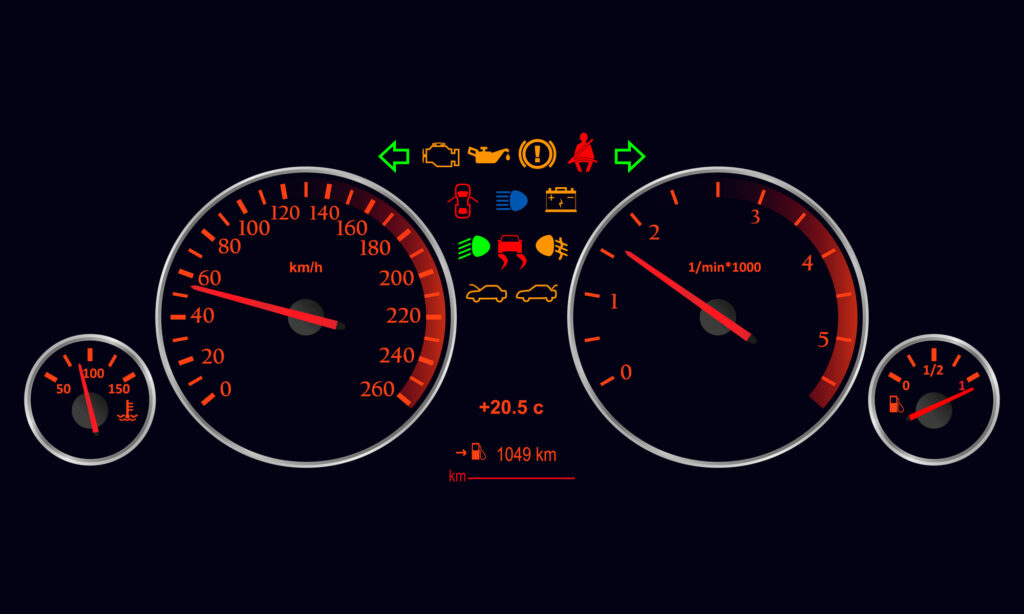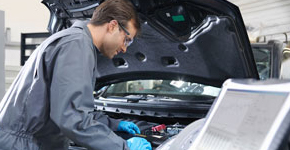Your car battery is the unsung hero of your daily commute, silently providing the electrical power needed to start your engine, run your lights, and keep your gadgets charged. However, just like any other component in your vehicle, car batteries have a limited lifespan, and they can wear out over time. Ignoring the signs of a failing battery can lead to unexpected breakdowns and frustrating mornings when your car won’t start.
In this blog, we will explore some of the telltale signs that your car battery might be on its last legs. Pay attention to these signs and don’t ignore them, as they may save you from inconvenient car breakdowns.

1. Lighting Issues
One of the most noticeable signs of a failing battery is dim or flickering headlights. When the battery does not have enough power to provide a consistent electrical supply, your headlights may appear noticeably dimmer than usual. Flickering headlights can occur because the voltage from the battery fluctuates, causing the lights to momentarily lose power.
The car’s battery is also responsible for powering interior lights, such as dome lights, map lights, and reading lights. You may experience problems like these lights not turning on or working erratically. The dashboard lights are also controlled by the battery. If you notice that your dashboard lights are dimming or flickering, it could be due to a weakening battery. Additionally, the battery warning light on the dashboard may illuminate, indicating a problem with the battery itself.
2. Difficulty Starting the Ignition
Having difficulty starting the ignition of a car can be a frustrating and inconvenient experience, but it often serves as an early warning sign that your car’s battery may need to be replaced. When you turn the key or push the start button, the engine cranks or turns over. If you notice that the cranking is slow, it is an indication that the battery is struggling.
You may also hear clicking sounds when you attempt to start the car. These clicks typically signal that there is insufficient electrical power to engage the starter motor. The clicking noise is the solenoid, a small electrical switch, trying to engage the starter but failing due to the low battery voltage.
3. Electrical Malfunctions
A failing battery can lead to erratic operation of various electrical accessories, such as power windows, power locks, the radio, air conditioning, and the infotainment system. These components may not function correctly or may exhibit intermittent problems due to insufficient power from the battery.
When you start your car, the battery provides power to maintain settings like the clock time and radio station presets. If you notice that these settings are reset every time you start the car, it could be a sign that the battery is losing its charge capacity.

4. Strange Odors
Smelling a strange odor in your car can sometimes be an unexpected indicator that your car’s battery may need to be replaced. While it is not the most common symptom associated with battery problems, it can occur under certain circumstances.
Car batteries can produce heat but when a battery is overworked or nearing the end of its lifespan, it may generate excessive heat. This increased heat can cause the battery to emit a distinct odor, often described as a sulfur or rotten egg smell. The smell is a result of the sulfuric acid inside the battery overheating and releasing gas into the surrounding environment.
5. Corrosion
Corrosion around the terminals of your car battery is a common indicator that your battery may need to be replaced. Corrosion, which appears as a white, ashy, or sometimes blue-green powdery substance, can accumulate on the battery terminals and cable connections over time. This buildup of corrosion can lead to a range of problems and serves as a clear sign that it is time to consider a battery replacement.
Corrosion not only impacts the electrical performance of the battery but also poses safety risks. It can cause the battery terminals and cable connectors to become brittle and weakened over time. If the corrosion is not addressed, there is a risk of the cables breaking or the terminals cracking, which can lead to electrical shorts or even a battery acid leak.
6. Age
After around 3 to 5 years, it is a good idea to start monitoring your car battery’s performance and consider a replacement. You should consider it especially if you notice any signs of weakness or if you are experiencing issues like slow cranking, dimming lights, or electrical malfunctions.

Choose Ray’s Muffler for Car Battery Maintenance
If you are in need of a new car battery or any other car maintenance or repairs, contact Ray’s Muffler today! We can get your vehicle in great condition in a short period of time, all within a reasonable price range.



